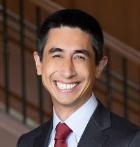Contact Us
Associate Professor John Beshears's Research on Portfolio Risk-Taking Wins Annual TIAA Paul A. Samuelson Award
 John Beshears
John BeshearsBOSTON—The TIAA Institute today announced that Harvard Business School associate professor John Beshears, with fellow researchers David Laibson and Brigitte Madrian of Harvard University, and James Choi of Yale University, has won the 22nd Annual TIAA Paul A. Samuelson Award for Outstanding Scholarly Writing on Lifelong Financial Security. The Samuelson Award recognizes outstanding research that the private and public sectors can use to maintain and enhance Americans’ financial well-being. The researchers were recognized for their paper, “Does Aggregated Returns Disclosure Increase Portfolio Risk-Taking?” The paper examines previous studies’ findings that participants take more investment risks if they see returns less frequently, see portfolio-level returns, or see long-horizon historical distributions. The authors offer a different perspective that challenges what has been widely accepted about how investor behaviors and disclosure policies impact risk-taking. “We're honored to receive the Samuelson Award for our work on the design of investment returns disclosure,” said the authors in a joint statement. “The TIAA Institute has a long history of supporting impactful research that promotes financial security. We hope that our article continues this tradition by shedding light on the elements of the information environment that do and do not influence individuals' portfolio choices.” “Previous academic experiments have shown that participants are willing to take more investment risk when they see portfolio-level versus individual-asset returns, or when they view the distribution of returns over longer periods. These earlier experiments suggest that information aggregation increases risk taking, which has enormous implications for financial advisory practice and disclosure policies,” said Conrad S. Ciccotello of the University of Denver, one of this year’s judges. “This paper shows that the previously-accepted link between information aggregation and risk taking does not hold in a more realistic experimental setting. In so doing, it offers a new and more robust perspective on how investor behaviors and disclosure policies impact risk taking, which in turn can positively impact the lifelong financial security of individual investors and their families.” |
Christian Camerota
617-495-6931
ccamerota+hbs.edu
About Harvard Business School
Harvard Business School, located on a 40-acre campus in Boston, was founded in 1908 as part of Harvard University. It is among the world's most trusted sources of management education and thought leadership. For more than a century, the School's faculty has combined a passion for teaching with rigorous research conducted alongside practitioners at world-leading organizations to educate leaders who make a difference in the world. Through a dynamic ecosystem of research, learning, and entrepreneurship that includes MBA, Doctoral, Executive Education, and Online programs, as well as numerous initiatives, centers, institutes, and labs, Harvard Business School fosters bold new ideas and collaborative learning networks that shape the future of business.
LATEST PRESS RELEASES
-
10 Sep 2025
Harvard Business School Rock Center for Entrepreneurship Announces 2025-2026 Entrepreneurs-in-Residence, Venture Capital Advisors, and Legal Specialists
-
26 Aug 2025
Harvard Business School Announces 2025 Goldsmith Fellows
-
14 Aug 2025
Harvard Business School Professor Emeritus Jay W. Lorsch Dies at 92
-
13 Aug 2025
Harvard Business School Professor Emeritus H. Kent Bowen Dies at 83
-
24 Jul 2025
Harvard University Announces Jill Kravetz as Harvard Innovation Labs Executive Director
